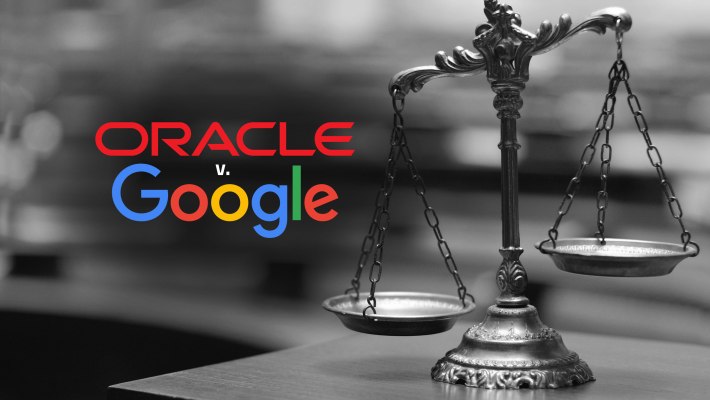Software developers can breathe a massive sigh of relief — a jury found today that Google’s implementation of 37 Java APIs in Android qualified as fair use. However, Oracle attorneys have already indicated that they will appeal the decision.
“Today’s verdict that Android makes fair use of Java APIs represents a win for the Android ecosystem, for the Java programming community, and for software developers who rely on open and free programming languages to build innovative consumer products,” a Google spokesperson said.
If the jury had found in favor of Oracle, which owns the Java programming language, it may have scared developers away from reimplementing other companies’ APIs in their work — a widespread practice in software development.
Oracle’s fight with Google began in 2010, when Oracle filed a suit claiming Google used implementing code from the Oracle-owned Java programming language without permission. A court initially found that Google did not violate Oracle’s copyright, but the decision was overturned when an appeals court found that the APIs in question are indeed copyrightable. The case then turned to the question of fair use, which allows for the use of copyrighted material under certain conditions.
Oracle licenses the use of Java in commercial products, but Google argued that its implementation of the 37 APIs in question fell under fair use because it transformed the bits of Java it used into a unique product — the Android platform. If Oracle had won, it stood to gain roughly $9 billion in damages.
“Overall, this is a win for software development,” said Mitch Stoltz, a senior staff attorney at the Electronic Frontier Foundation who focuses on copyright issues. “I think it’ll give software developers a bit more confidence that reimplementing APIs is not something that’s going to get them sued.” However, Stoltz pointed out that the appellate ruling still stands, and small developers could still face copyright lawsuits from tech behemoths.
During his testimony in the case, Google co-founder and Alphabet CEO Larry Page disputed Oracle’s assertion that Google engineers had copied code when they built the Android platform. “I don’t accept the definition of code includes API declarations,” he told the jury. Page also called his engineers’ use of the Java declaring code in Android “widespread industry practice.”
Judge William Alsup, who also presided over Oracle’s copyright case against Google, frequently praised the jury for its thoughtful approach to this case. In a somewhat unusual move, Alsup allowed jurors to take their notes home with them before they heard closing arguments in the case and during their deliberations, so they could study the facts.
The ruling could indicate the winding down of a legal battle — but Oracle has already said it will appeal.
“We strongly believe that Google developed Android by illegally copying core Java technology to rush into the mobile device market,” Oracle’s general counsel Dorian Daley said in a statement. “Oracle brought this lawsuit to put a stop to Google’s illegal behavior. We believe there are numerous grounds for appeal and we plan to bring this case back to the Federal Circuit on appeal.”

